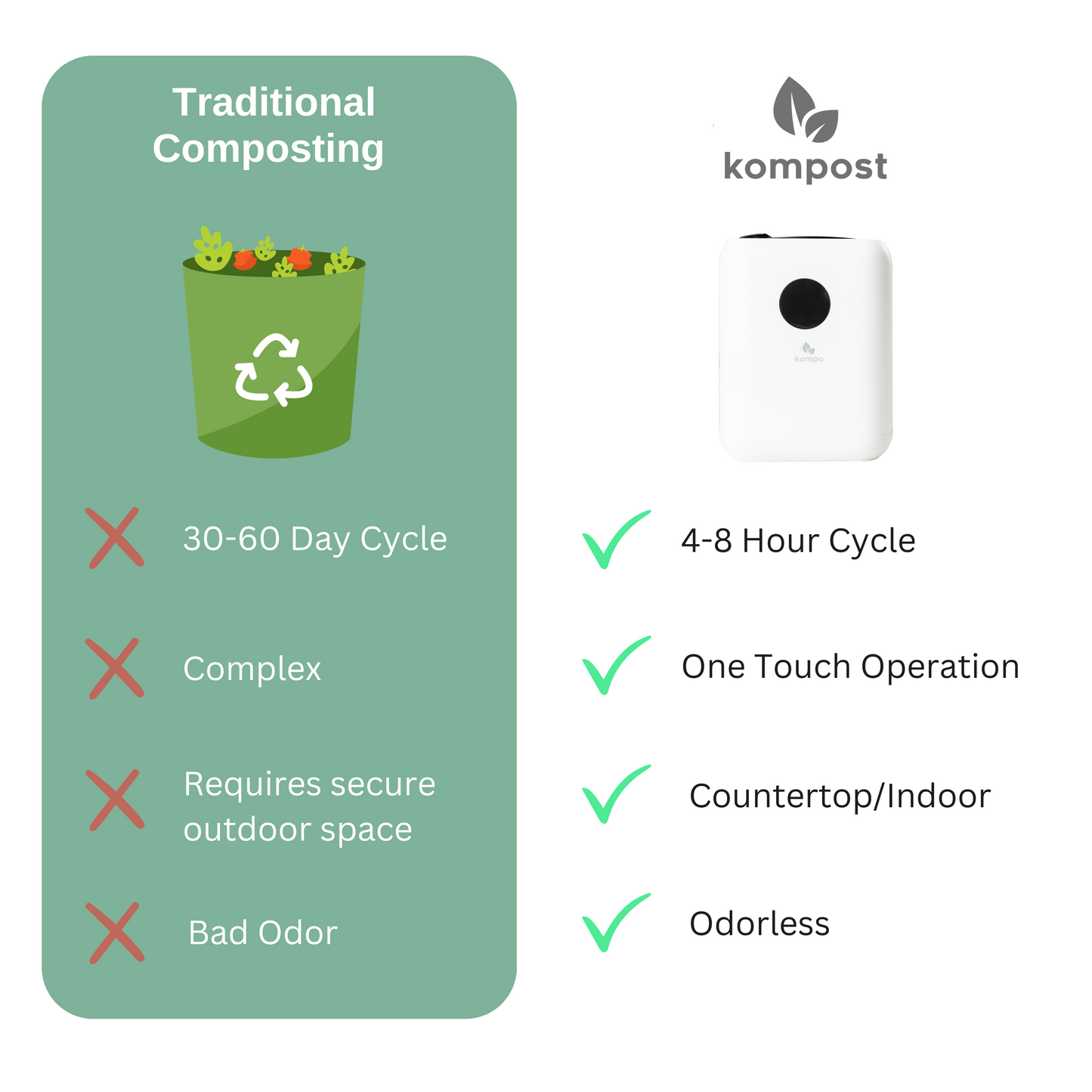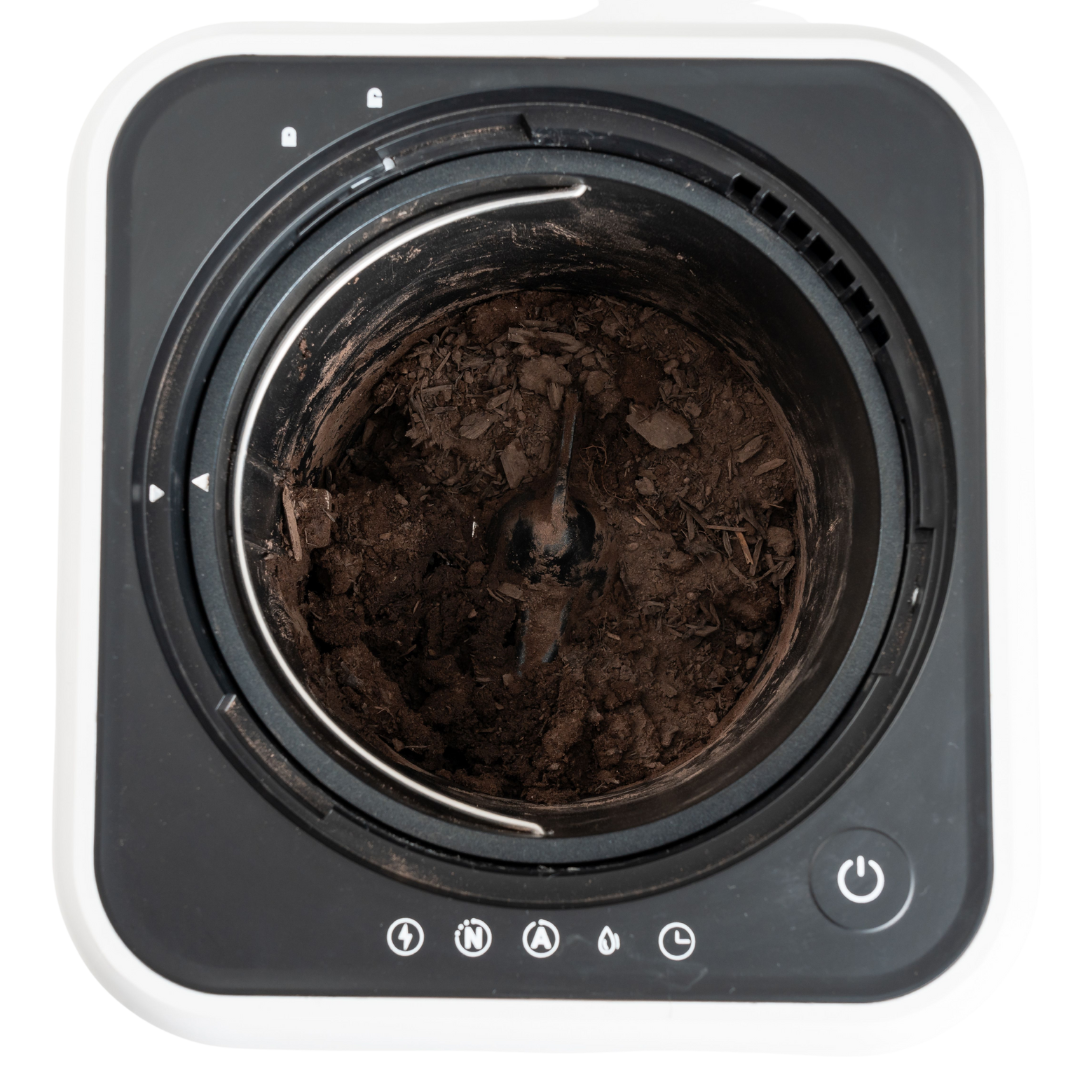
Why Kompo is Better for the Planet Than Landfilling Food Waste
Share
We completely get how using electricity for a sustainable product may seem counterproductive, but here are the facts that show otherwise;
Every day, millions of households throw food scraps into the bin without realizing the significant environmental harm this simple act causes. When food waste ends up in a landfill, it becomes a hidden villain in the fight against climate change. But with Kompo, you can be part of the solution. Here's why composting with Kompo is not just a good idea but it's also essential for a healthier planet.
The Hidden Environmental Cost of Food Waste in Landfills
Did you know that food waste is the largest single component of landfill material, accounting for approximately 24% of municipal solid waste? When food decomposes in a landfill, it doesn’t break down harmlessly. Instead, it undergoes anaerobic decomposition, a process that occurs without oxygen. This produces methane, a greenhouse gas that is 28-36 times more potent than carbon dioxide over a 100-year period.
Shockingly, landfills are the third-largest source of methane emissions globally, and food waste is a major contributor to this environmental disaster. For every ton of food waste that ends up in a landfill, about 1 ton of CO2-equivalent methane emissions is released into the atmosphere. This makes food waste one of the most preventable causes of climate change.

Kompo: The Carbon-Positive Alternative
By using Kompo, you can break the cycle of methane production and contribute to a greener, cleaner world. Here’s why;
1. Prevents Methane Emissions
When you compost with Kompo, food scraps decompose in an aerobic (oxygen-rich) environment. This process eliminates the production of methane entirely. Instead, it produces carbon dioxide and water, which are far less harmful to the environment.
2. Net Carbon Savings
While Kompo uses electricity to operate, the carbon footprint is minimal compared to the emissions saved.
- Energy Use: Kompo consumes just 26 to 52 kWh annually, equating to 0.02112 to 0.04224 tonnes of CO2 if powered by coal (a non-renewable source).
-
Methane Avoided: By composting 52 kg of organic waste annually, Kompo prevents the release of 0.052 tonnes of CO2-equivalent methane emissions. The result? A net positive environmental impact, even when powered by non-renewable energy. The benefits are even greater if renewable electricity powers Kompo!
-
Waste Diversion Kompo reduces food waste volume by up to 90%, significantly decreasing the amount of material sent to landfills. This reduction conserves landfill space and mitigates the production of toxic leachate, a harmful liquid that can seep into soil and groundwater.







